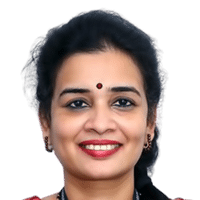Challenges For Practicing Sustainability In Healthcare In India
Read the Magazine in PDF
Health is a crucial input and output for economic value, individual growth, and welfare. Beyond practical healthcare activities, there is growing interest in diverse health aspects. In India, healthcare’s economic paradigms highlight issues of marginalization and inequity, with significant disparities in healthcare and status between genders and regions.
Sustainable Development Goals (SDGs) and globalization necessitate exploring and evaluating these paradigms. India’s healthcare scenario ranges from modern facilities for the urban affluent to struggling health sub-centers in remote regions. Health is fundamental to sustainable development, impacting material, psychological, social, cultural, educational, professional, political, and personal security.
Economic Value and Individual Growth in Healthcare
In the Indian healthcare system, low awareness, limited access to quality healthcare, a human resource crisis, and high costs are hindering economic value and individual growth. Many people lack knowledge about essential health issues due to low education and limited healthcare emphasis.
Access to healthcare is challenging, particularly in rural and underserved areas, leading to unequal healthcare utilization. The shortage of adequately trained healthcare workers further exacerbates the problem. Additionally, high healthcare costs burden households, with the private sector dominating but perceived as unreliable.
To address these challenges, awareness campaigns and educational initiatives are essential. The government must invest in rural healthcare infrastructure, incentivize healthcare professionals to serve in underserved regions, and implement transparent national health insurance to improve affordability and overall healthcare quality.
The Impact of Sustainable Development Goals (SDGs) and Globalization
The Millennium Development Goals (MDGs) marked a substantial change in the willingness of governments throughout the world to combat poverty and enhance people’s well-being. Since their inception, however, there are some fresh challenges. The Sustainable Development Goals (SDGs) were created in response to these new challenges, which also include accelerated environmental deterioration, growing inequality, and rising unemployment rates.
The goals of the SDGs are to eradicate poverty and hunger, provide accessible basic services, encourage sustainable production and consumption, reduce inequality, and protect ecological integrity. These goals, encompass the following themes and are seen as feasible developmental models by various organizations:
- People
- Planet
- Prosperity,
- Peace
- Partnerships
Health is recognized as a primary concern for international progress, with the MDGs and SDGs focusing on health-oriented targets, including universal health coverage (UHC) as a key aspect of SDG 3. Achieving SDG 3 depends on progress in other interconnected SDGs covering areas such as poverty reduction, education, nutrition, gender justice, water, sanitation, and energy resources.
Addressing Challenges -The Complex Healthcare
Addressing healthcare challenges is a complex task that requires understanding the continuum of care and the involvement of various stakeholders. The healthcare continuum involves various challenges. By generating widespread awareness of the risk factors and symptoms of diseases, various diseases can be prevented. Primary, secondary, and tertiary care provision for patients can also be achieved.
Communicable and non-communicable diseases often coexist, which makes the situation more difficult and calls for a variety of actions to fulfill the demands for funding, prevention, provision, and protection. External factors like poverty, nutrition, hygiene, education, and the empowerment of women also influence health inequalities and must be considered for lasting population health improvements.
Various stakeholders, including the Government, insurers, providers, pharmaceuticals, NGOs, and academia, play essential roles and contribute inputs and functions within the healthcare ecosystem. Understanding the dynamic interplay between stakeholders is crucial to tackling challenges in availability, cost, and quality of care, and to enhancing efficiency and productivity. The scale and diversity of healthcare challenges call for comprehensive and innovative approaches to yield timely and sustainable results in the Indian healthcare system.
Proposing Solutions for Universal Healthcare and Sustainable Development
Achieving universal healthcare and sustainable development is an uphill battle that needs the cooperation of many parties and multifaceted solutions. Integrating healthcare systems with sustainable development objectives ensures that everyone has access to high-quality healthcare while preserving the environment and social well-being.
Some of the proposed solutions for Universal Healthcare and Sustainable Development are:
- Implementing Universal Health Coverage (UHC) to ensure equitable access to healthcare services for all
- Strengthen primary healthcare to provide comprehensive and continuous care to communities.
- Address social determinants of health like poverty, nutrition, sanitation, education, and gender equality.
- Utilize technology and innovation to enhance healthcare delivery, especially in remote areas.
- Foster public-private partnerships (PPPs) to improve healthcare infrastructure and resource allocation.
- Promote sustainable healthcare practices to reduce environmental impact.
- Engage communities and empower individuals in decision-making and health promotion.
Conclusion
Addressing the challenges facing sustainability in healthcare in India requires a comprehensive approach that considers economic value, individual growth, and the impact of global initiatives like the Sustainable Development Goals (SDGs). The complexity of healthcare issues demands involvement from diverse stakeholders, and proposed solutions include universal health coverage, strengthening primary healthcare, addressing social determinants of health, utilizing technology, fostering partnerships, promoting sustainable practices, and engaging communities. By working together towards these goals, India can create a healthcare system that ensures equitable access to high-quality medical services while fostering sustainable development for the well-being of its people and the planet.
References
- Kasthuri, A. (2018). Challenges to healthcare in India-The five A’s. Indian journal of community medicine: official publication of Indian Association of Preventive & Social Medicine, 43(3), 141.
- Mir, T. A., & Singh, M. (2022). Indian Healthcare Sector and the Sustainable Development. Int J Cur Res Rev| Vol, 14(03), 43.
- Albu, D. (2021). The Sustainable Development Goals Report 2021. Drepturile Omului, 115.
Author
-

Secretary General, CAHO, Quality Manager & Associate GS, Christian Medical College, Vellore



